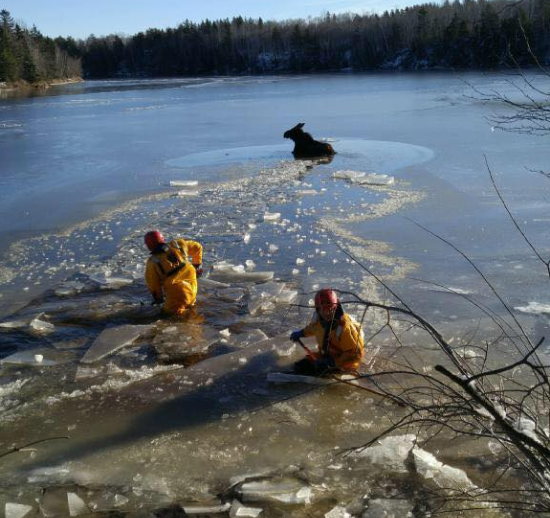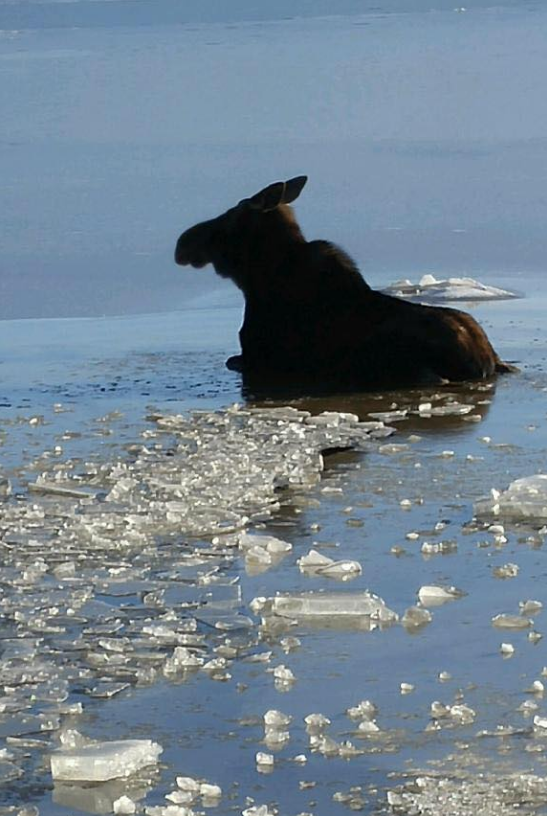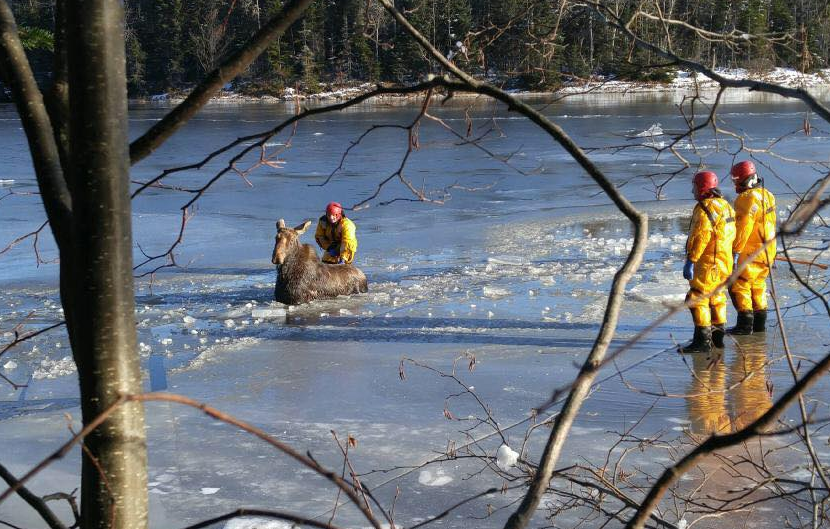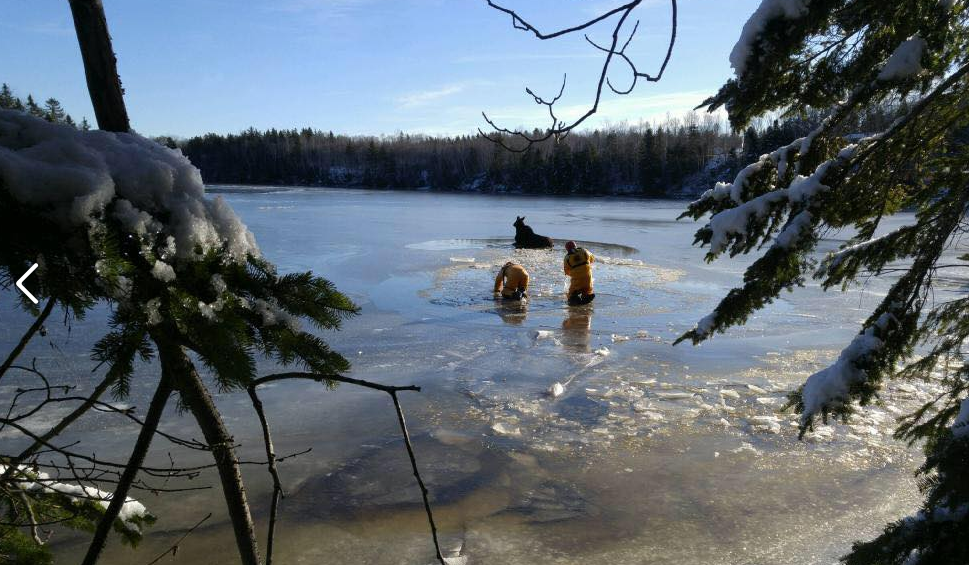A moose in distress in the Shediac River in Shediac, N.B., was rescued by some quick-thinking firefighters Saturday.

The 240-kilogram female moose became stuck while trying to cross the ice-covered river.
“It was stuck in the ice, I would say about 25-30 feet from the shore,” said Julien Boudreau, a firefighter with the Shediac Fire Department, who was part of the rescue effort.
“There was a few holes between it and the other side of the shore, so it looked as if she had tried to cross and went through a few times and was able to get part ways across, but probably got tired by three-quarters of the way across and that’s where we found her.”
Boudreau said they then did a risk assessment to determine whether it was safe to go onto the thin ice then, with the help of the Department of Natural Resources (DNR) and the RCMP, they began the process of freeing the moose.
READ MORE: Dog found in frozen pond in Nova Scotia rescued by RCMP officer
“We made a channel from the moose to the shore by breaking up the ice, that way the animal is able to. Once we broke around the animal she sunk into the bottom and stand on his own feet on the bottom of the water,” Boudreau said.

Get daily National news
They left the moose standing in the water for about 20 minutes so it could regain strength, then started to encourage her along to shore, where she then took off into the woods.
Boudreau said this was a first time they’ve rescued a moose — they’ve rescued other animals like deer and birds in the past.
Why take the risk to rescue the moose?
Despite the moose being rather docile throughout the rescue efforts, posing no threat to the firefighters — the crew still went out onto thin ice to help her.
Boudreau said deciding to take that chance is a part of their risk assessment.
“We have to assess the risk of not doing it as well, because if we don’t go, chances are that somebody else will go, and that somebody may not have the expertise or experience of going on thin ice and may not be equipped to do so,” Boudreau said.
Boudreau said that if a bystander had gone in to help the moose and fell through the ice too, their risk assessment would have quickly changed.
Thanks to coaching from DNR, Boudreau said firefighters were able to rescue the moose without aggravating her or making her stressed, and kept a safe distance from her while working.
“We have the expertise for going on the ice, but we don’t have the expertise that they have in terms of the animal’s reaction to us,” he said.
















Comments